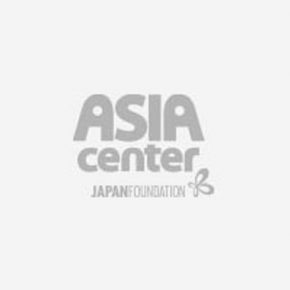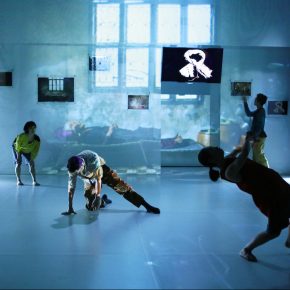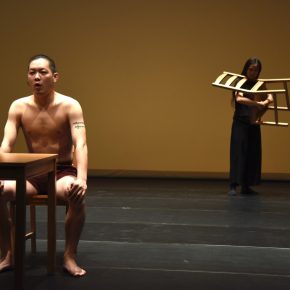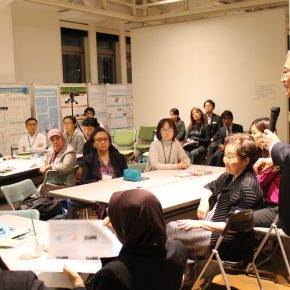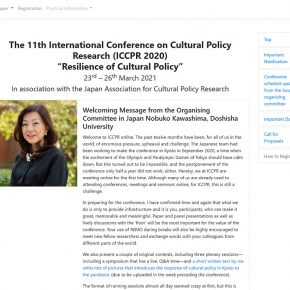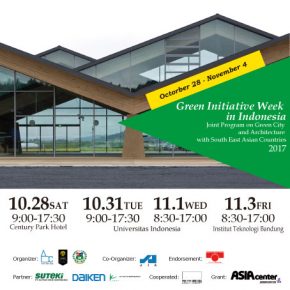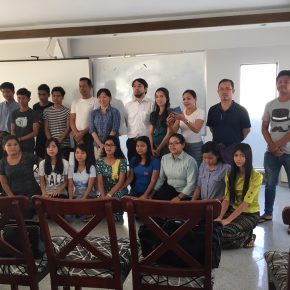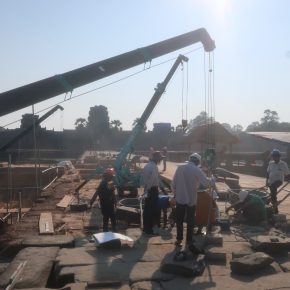The project is designed to enhance and to promote co-learning and mutual understanding between 2 cities, Jakarta and Tokyo, on the contemporary cultural landscape approach in urban areas. The authentic urban cultural landscape in Jakarta is called kampung, and it is often misunderstood by the general public and policymakers. The similar situation also happened in Japanese cities after rapid development in the 1950-60 era, when heavily industrialised Japanese cities became individualised until they started the Machizukuri approach.
The project is consisted of 3 phases, first is a study visit to 6 Japanese cities (Tokyo, Nagoya, Osaka, Kitagata, Kobe and Kyoto), the second phase is hosting 2 japanese researchers in Kampung Akuarium and the final phase is an international conference, field school and exhibition of “Reviving Urban Commons” in Kampung Akuarium. The series of events were covered by various newspapers. The Japan study visit participants consisted of 3 architects and 3 community leaders from kampung. Later on, the Jakarta Provincial Government agreed to send 2 participants under the government expenses.
Our partner organization is Kanki Lab, School of Design of Kyoto University also received 2 grants from Toyota Foundation and JSPS (Kakenhi Foundation). Through the support of Prof. Kiyoko Kanki, we are able to expand this collaboration with similar neighborhoods in Taipei City, Taiwan. The result of these activities were presented by Elisa Sutanudjaja and Prof. Kanki in The 15th Conference of International Development and Urban Planning (CIDUP), in Tokyo.
2015年度採択事業 https://grant-fellowship-db.asiawa.jpf.go.jp/ja/grant/cc1550/
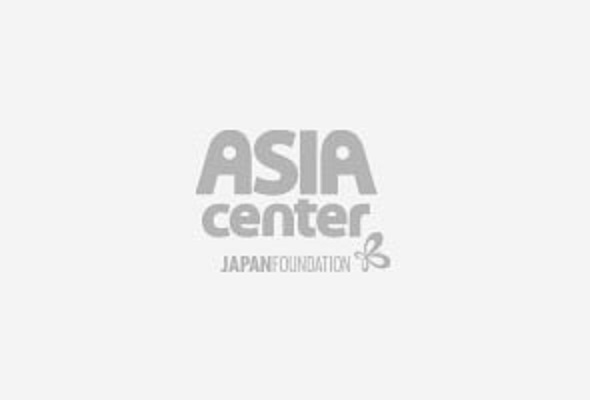
- 関連する国/地域
- 日本, インドネシア, 台湾
- 協力団体/協力者
- 京都大学 神吉研究室
申請団体より
The experience and knowledge gathered during the Japan study trip is very useful for design input for the Kampung Akuarium rebuilding program. The study trip also generated input for the Urban Agrarian Reform, a government program. We utilised our knowledge and discussion about machizukuri and presented it to the UAR coordinator.
The meeting with Kyoto based housing co-op, also inspired kampung leaders to set up the similar movement and now 3 kampungs have co-ops, and they will utilise co-op for kampung management.
Currently, Rujak is under discussion with Professor Tamaki Endo, Saitama University to develop a project about informal economy.
Rujak also is developing another proposal with Kanki Lab using experience in Jakarta, and it will be focused on flood and cultural landscape.
